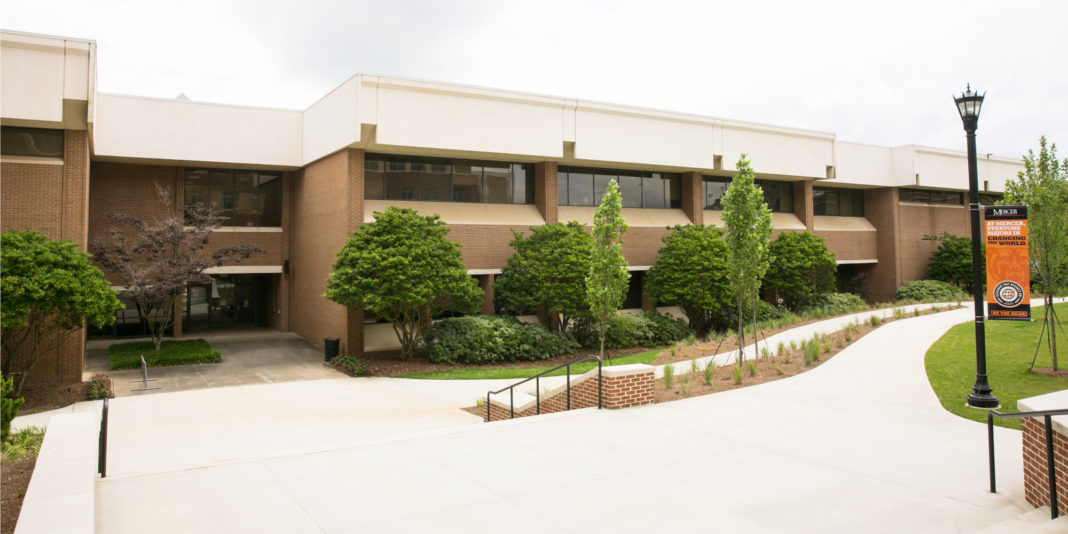MACON – Mercer University School of Medicine’s Department of Biomedical Sciences, in partnership with Mercer Medicine and Louisiana State University Health Shreveport (LSUHS), recently received a Rockefeller Foundation grant to begin viral genome sequencing of COVID-19 positive samples.
MUSM received a $25,000 subaward as an accelerator site for the larger LSUHS grant project and will use the funding to monitor, track and report on the occurrence of COVID-19 variants throughout the state of Georgia.
MUSM researchers will sequence Mercer Medicine samples in Macon and Atlanta and are currently exploring partnerships to expand this work to rural and underserved areas through the University’s connections in Columbus, Savannah and other locations around the state. Mercer is working with LSUHS to apply for additional funding from the Centers for Disease Control and Prevention (CDC) to expand these efforts.
Mercer’s project team is led by Dr. Robert McKallip, chair of the Department of Biomedical Sciences, and includes MUSM faculty and staff Dr. Olga Uchakina, research associate, Dr. Pamela Cook, assistant professor of genetics, Dr. Gretchen Bentz, associate professor of virology, and Dr. Rafael Ponce Terashima, assistant professor and infectious disease physician. Mercer Medicine team members include Marnie Hill, director of clinical diagnostics services and clinical research, and Vance Mack, diagnostic lab manager.
“We’ve developed a great team at Mercer that includes individuals from the Department of Biomedical Sciences, the Division of Infectious Disease and Mercer Medicine that enabled us to partner with LSUHS to begin sequencing COVID-19 positive samples from our diagnostic laboratory in Macon,” said Dr. McKallip.
“This is an important advancement in our handling of the COVID-19 epidemic as it provides us with the tools to monitor, track and report on the occurrence of COVID-19 variants in our community. Currently, we send our samples to LSUHS for sequencing, but the Department of Biomedical Sciences is working towards developing an independent sequencing facility that will greatly improve upon our current our ability to quickly assess and respond to COVID-19 and/or any future infectious diseases that make their way into Georgia communities. None of this could have been done without the support of Mercer University and the surrounding community.”
LSUHS team members include Dr. Jeremy Kamil, principal investigator on the Rockefeller Foundation grant, and Dr. Krista Queen, director of viral genomics and surveillance.
“We are excited to be working with Mercer. Dr. McKallip and his team are harnessing the very latest in genome sequencing technologies to keep Georgia one step ahead of viral variants. I’ve been truly impressed at how many viral genome sequences that Mercer already generated and rapidly shared via the GISAID community, a global organization that helps scientists rapidly share these data to safeguard public health. The timing couldn’t have been better. Just as we started working together, Omicron was discovered,” said Dr. Kamil.
“In a pandemic, rapid data sharing saves lives by providing information necessary to keep vaccines and diagnostics up-to-date and to tell which variants are going to be a problem. A key component of our collaboration is that the Mercer team and their local collaborators are the ones who call the shots and who get credit for these valuable data. We feel that researchers who have roots in their own communities are in the best position to build relationships with local patients and clinics, to gather samples and educate others in their communities about why viral genome sequencing matters. We also know that Mercer is partnering with the Georgia Department of Public Health to help inform agile responses and coordinate efforts in the way that makes the biggest impact for Georgia. We think there may even be a halo effect on vaccine uptake because people might take the virus more seriously when they know what variants are lurking their own neighborhood. LSUHS is truly honored to play a role in Mercer’s success.”
About Mercer University School of Medicine (Macon, Savannah and Columbus)
Mercer University’s School of Medicine was established in 1982 to educate physicians and health professionals to meet the primary care and health care needs of rural and medically underserved areas of Georgia. Today, more than 60 percent of graduates currently practice in the state of Georgia, and of those, more than 80 percent are practicing in rural or medically underserved areas of Georgia. Mercer medical students benefit from a problem-based medical education program that provides early patient care experiences. Such an academic environment fosters the early development of clinical problem-solving and instills in each student an awareness of the place of the basic medical sciences in medical practice. The School opened a full four-year campus in Savannah in 2008 at Memorial University Medical Center. In 2012, the School began offering clinical education for third- and fourth-year medical students in Columbus. Following their second year, students participate in core clinical clerkships at the School’s primary teaching hospitals: Medical Center, Atrium Health Navicent and Piedmont Macon Medical Centers in Macon; Memorial University Medical Center in Savannah; and Piedmont Columbus Regional Hospital and St. Francis Hospital in Columbus. The School also offers master’s degrees in family therapy, preclinical sciences and biomedical sciences and a Ph.D. in rural health sciences.










